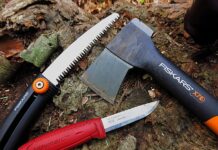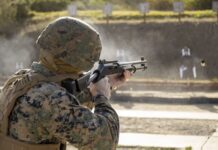
From Mike Westra
According to a study done by the World Health Organization one person dies every 100 seconds in an armed conflict somewhere in America. That means in the time it took you to shower and drink your first cup of coffee this morning 20 people died. In the time it takes you to read this article another 6 will be killed. If you look at all the criminal cases roughly 40 percent of all murders go unsolved. Law enforcement just does not have all the resources they need to solve all murders. There are some who think they have a great idea to assist law enforcement in lowering the number of unsolved murders.
HR 3458 is the brainchild of U.S. Rep. Anthony Brown, D-Md.
HR 3458 will prohibit any FFL from manufacturing, selling, or transferring any semi-automatic firearm that does not micro stamp the casing. At face value micro stamping a casing sounds like an awesome idea. Empty casings left at a crime scene should lead law enforcement officials to the gun that fired them, thus reducing the number of murders that go unsolved. California has had a similar law on the books since 2007 and so far the only result is a reduction in the number of handguns available at stores. Currently no manufacturer mass produces a firearm that utilizes micro stamping technology.
Besides the lack of firearms on the market capable of microstamping, due to technological inviability, I see several other problems with this legislation.
The first being that HR 3458 does not apply to revolvers, it should apply to all firearms or none. HR 3458 is a form of backdoor gun control that limits what you can purchase. Secondly most states do not have a gun registry so tracking a dropped casing to a specific gun becomes more difficult. Sure they could get the records from the gun stores as to who bought a gun with serial number ###-####, but this would just create a mountain of paperwork. Several states and even Canada have dropped firearm records databases because they served no useful purpose in crime solving or prevention and only drained away money.
In 2016 over 27 million background checks were performed by licensed dealers for firearm purchases. Think about the mountain of paperwork an investigator would have to manually read through. Now imagine the paperwork generated from all firearms sold in just the past 10 years. The federal government requires FFL dealers performing the background checks to keep the 4473 forms from purchases indefinitely. Most FFL dealers do not have these forms digitally categorized so the completed 4473’s sit in boxes piled up in cold storage. Investigators would have to pour through every form just to find the purchaser of the firearm in question. After searching through every document they may find the name and address of the original purchaser for the firearm in question. Possessing the name and address of the original purchaser does not mean they found the shooter, just the first buyer.
Americans buy and sell guns every day, in states where there is no registration the trail stops at the original purchaser. Imagine sitting down with your family after a long day at work and the police show up at your door with an arrest warrant for you. You are handcuffed and escorted in a police cruiser to the police station interrogation room while your family and neighbors watch the excitement from their front porches. At the police department you’re not treated like the person you are but more like a scumbag criminal. Detectives ask you numerous questions, about a shooting, about the victim, and why you did it just because you are their number one suspect. At this point things get very costly for you. Friends, family and neighbors start talking about you being the shooter. Coworkers, maybe even your boss start to question if they should believe you or the reports on the news. You and your family definitely need to consult and hire not one but maybe several attorneys just to prove that you sold that gun years ago.
How about in states where there is firearm registration? What if the person you sold your firearm to never registered it? Did you keep the seller’s copy of the registration? How do you prove you sold it if you lost or threw out your copy? Law enforcement officers will get a warrant to search your house. What will they find? That warrant may possibly lead them to find ammunition from the same gun and manufacturer that was used at the scene. See where I am getting at? Were supposed to be innocent until proven guilty, but the reality is most people have already made up their minds and it is up to you to prove innocence.
Perhaps the biggest problem with the bill is the fact that criminals don’t buy guns at FFL dealers. Criminals typically don’t follow rules or laws, and they defiantly don’t register the guns they use to commit a crime. What is stopping the shooter from filing off the micro stamp, or scooping up your brass from a shooting range and leaving them at the scene instead of the ones they fired? Now you have the cops showing up at your door with spent casings from your gun that you did not clean after you last shot it. The gun is in your house, now they have matching casings, the gun, and the one person whose fingerprints are all over the gun and ammunition. In fact the ammo is the same ammo that you still have loaded into your gun.
I am all for giving law enforcement better tools to help make our streets safer, however I think HR 3458 is a terrible idea based on a flawed ideology that criminals follow the rules. If HR 3458 passes and becomes law not only will guns become harder to get but it will lead innocent gun owners being locked up because an overzealous prosecutor, judge, jury or officer failed to believe your story over an easily thwarted nonviable technology.



